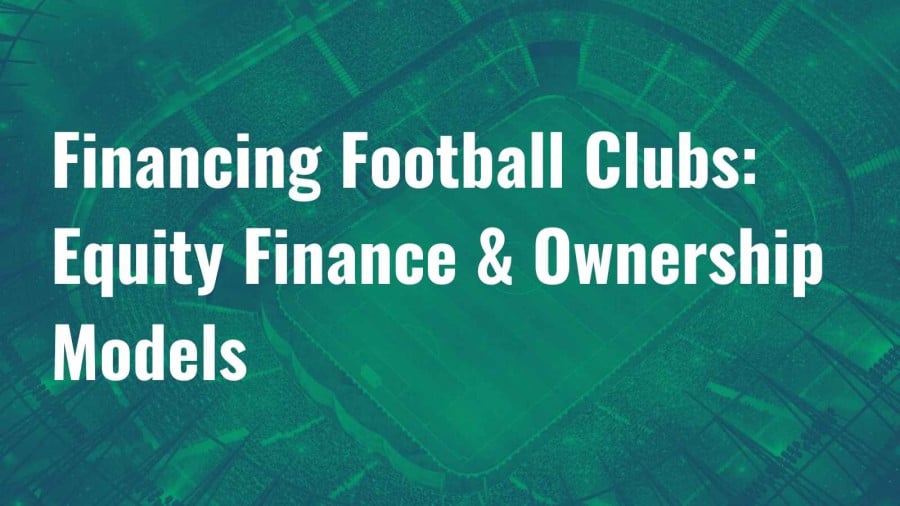A Guide To Financing Football Clubs: Part 2 – Equity Finance & Ownership Models

This article series explores investment and finance in football. It is split into three parts, which examine in turn: (1) debt finance, (2) equity finance and ownership structures, and (3) financing trends resulting from Covid-19.
Part 2, below, focuses on equity finance, and will examine:
- Various forms of club buy outs including:
- League Equity Investments
- Multi-club ownership
- Raising Finance From The General Public
Links to the other parts of this series can be found here:
Part 3 – Financing Trends And Expectations.
Where an investor is looking to gain operational control of a club (or other type of entity, such as a league, as discussed below), they will take an equity stake i.e. purchase equity shareholding of the corporate entity owning the club. The motivations for investors, and the drivers of PE interest in the sports sector generally, has been covered elsewhere (for more detailed information on private equity financing at a league level, see “How Would A Private Equity Firm Invest In The English Football League?”[1] by Sam Georgevic and for a more general consideration of commercial and legal drivers for private equity interest in the sports sector, see “Why long term private equity capital in sport is a potential game changer”[2] by Peter Hanton and Greg Scott). In summary, the authors would suggest that the principal driver is value – in particular, how to increase a football club’s valuation to the benefit of the club, its stakeholders, fans and the PE investors (on exit) alike.
For the purpose of this article, we split private equity investment in football into two broad forms:
- a club buyout, where generally an investor assumes full control of a club; or
- the burgeoning strategy of a minority investment in a football group or league.
Using the examples of:
To continue reading or watching login or register here
Already a member? Sign in
Get access to all of the expert analysis and commentary at LawInSport including articles, webinars, conference videos and podcast transcripts. Find out more here.
- Tags: Commercial Law | Corporate Law | Equity | Football | France | Investment | Italy | New Zealand | Private Equity | Public Listing | Regulation & Governance | Sports | United Kingdom (UK)
Related Articles
- Manchester City's Financial Fair Play ban: the legal questions and consequences
- A guide to Financial Fair Play and the ability of European football clubs to raise finance (Part 1)
- A guide to Financial Fair Play and the ability of European football clubs to raise finance (Part 2)
- Football Law 2021 Panel Summary: Legal Considerations When Financing Football Clubs
Written by
Michael Savva
Michael is a Solicitor in the Asset Finance practice at Watson, Farley & Williams LLP. He specializes in advising clients in relation to sports finance including: loan finance, financing of broadcasting and ticket revenues and the player transfer finance.
Stuart Bolton
Stuart is an associate in the Assets & Structured Finance group, based in Dubai. Stuart predominately advises investment banks on complex cross-border asset finance transactions in the aviation sector, and also practises sports finance and general corporate banking.
Since starting with Watson Farley & Williams as a trainee in 2016, Stuart has worked in London, Hamburg and Dubai.





